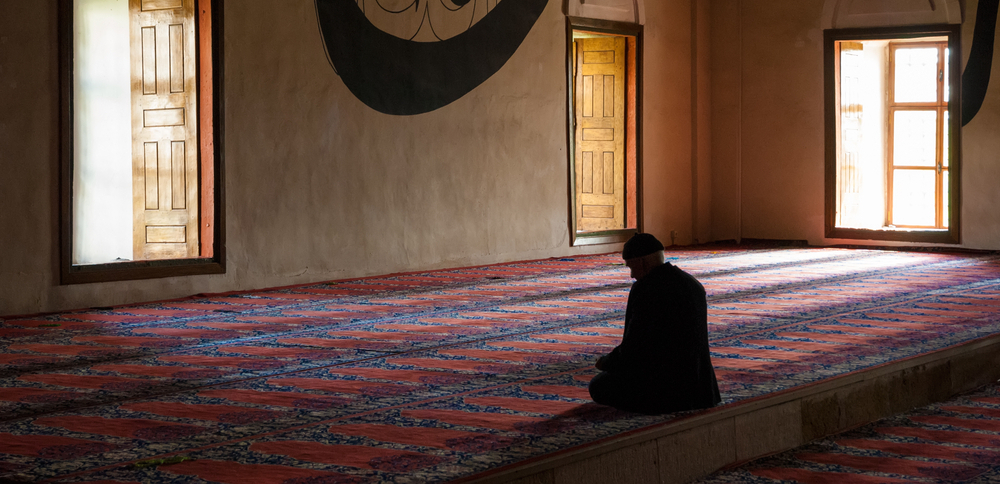How Do I Build a Connection with Allah?
Answered by Shaykh Yusuf Weltch
Question
My question is that for the past 5 to 6 months, I feel I have a consistent low Iman. I try to pray my daily prayers but still there is a struggle to pray Fajr and sometimes Isha on time. I procrastinate a lot regarding religious obligations, especially prayers and reading Quran. I keep reminding myself that I need to focus on a routine, but laziness and procrastination get the best of me. I feel Allah is not happy with me, and maybe I don’t deserve to be amongst His Beloved Slaves.
How do I build the connection with Allah Most High, and what can I do to remove this laziness? I am a chronic procrastinator, and this has affected me so badly that I cannot fulfill my worldly and otherworldly responsibilities. I also sometimes feel my supplications may not receive any answer because of my attitude. Please help and guide.
Answer
In the Name of Allah, the Most Merciful and Compassionate
Sorry to hear of your difficulty.
Fighting Procrastination
Islam is a religion of moderation and discipline. Some people are more prone to a lack of ambition and laziness than others. Therefore their test is in disciplining themselves. Others are overly-ambitious and tend to go to extremes in worship. Their trial would then be in applying moderation.
Between these two types are those who aim for excellence and consistency.
Allah Most High praises them in the Quran, saying, “Surely those who say, “Our Lord is Allah,” and then remain steadfast—there will be no fear for them, nor will they grieve.” [Quran, 46:13]
The Messenger of Allah (may Allah bless him and give him peace) said, “O people! Take actions that you can handle. For Allah does not tire rather you tire and certainly, the most beloved actions to Allah are those that are consistent even if little.” [Bukhari]
Discipline
Discipline is not something that can be acquired overnight. You must take small practical steps to achieve discipline and combat its opposites of laziness and procrastination. Take some of the following steps as a starting point.
Diagnose the cause of your delaying of Fajr and ‘Isha prayers. Make efforts to remove those causes. For example, if you miss Fajr for sleeping late, set a bedtime for yourself and stick to it as best as possible. Beware of making excuses.
Take only that portion of extra worship you know you can consistently do, even on the most challenging days. For example, think to yourself, ‘on the most difficult day, a day when I am tired, lazy, and don’t feel like doing anything, how much recitation of Quran could I do.’ Make that your minimum and never leave it out, even if that minimum is as tiny as half of a page.
Apply this to the other acts of worship as well. However, note that this advice will only help so much. You must find in your heart the desire and yearning for nearness to Allah and the great rewards He has in store.
Read about the rewards and virtues of doing these acts of worship. Knowing what Allah Most High has promised of immense rewards for these deeds will cultivate a stronger desire to do them.
I recommend reading the book ‘The Gardens of the Righteous” by Imam al-Nawawi.
Is Allah Most High Angry With Me
Remember that anyone concerned about what Allah Most High thinks of them, how they can be a better servant to Him and are remorseful for their deficiencies is beloved to Allah and blessed.
Allah Most High says, “When My slave asks you about Me, certainly I am close…” [Quran, 2:186]
He also says, “Remember Me, and I will remember you.” [Quran, 2:152]
If Allah Most High were displeased with you and wanted to punish you, He would have removed concern for Him from your heart.
Have a good opinion of Allah Most High and turn to Him in need. You will find Him the Best of Guardians and Sufficient for You.
Hope this helps
And Allah Knows Best
[Shaykh] Yusuf Weltch
Checked and Approved by Shaykh Faraz Rabbani
Shaykh Yusuf Weltch is a teacher of Arabic, Islamic law, and spirituality. After accepting Islam in 2008, he then completed four years at the Darul Uloom seminary in New York where he studied Arabic and the traditional sciences. He then traveled to Tarim, Yemen, where he stayed for three years studying in Dar Al-Mustafa under some of the greatest scholars of our time, including Habib Umar Bin Hafiz, Habib Kadhim al-Saqqaf, and Shaykh Umar al-Khatib. In Tarim, Shaykh Yusuf completed the memorization of the Qur’an and studied beliefs, legal methodology, hadith methodology, Qur’anic exegesis, Islamic history, and a number of texts on spirituality. He joined the SeekersGuidance faculty in the summer of 2019.
